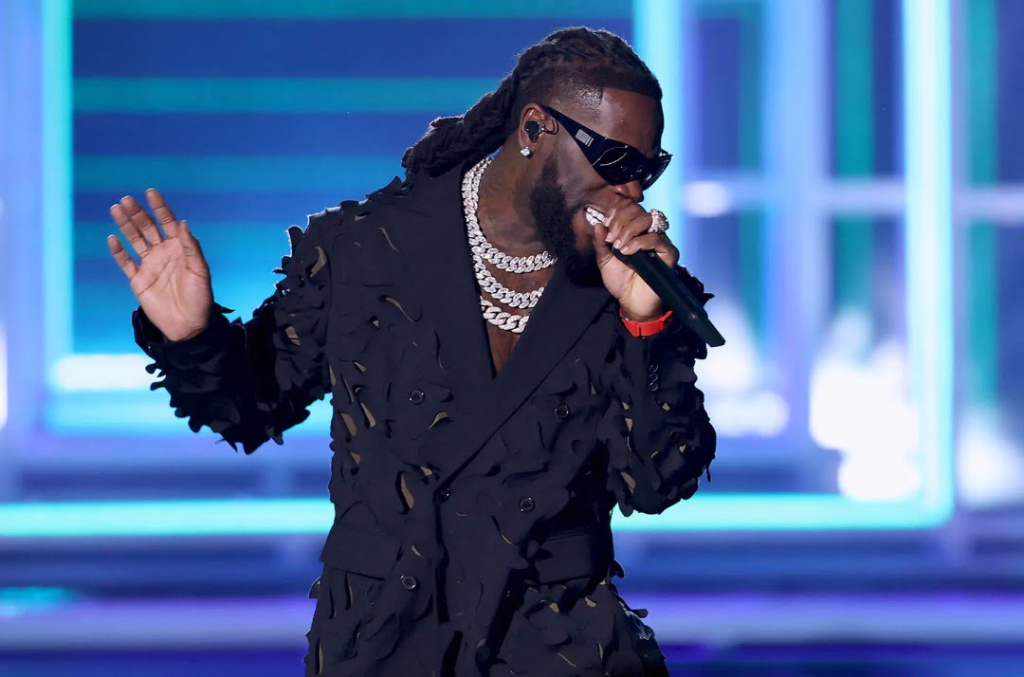Nigerian superstar Burna Boy has now secured more albums on the prestigious Billboard 200 chart than any other artist from his country, though his latest release underscores the shifting challenges Afrobeacts stars face in the U.S. market. The Grammy winner’s new project, No Sign of Weakness, entered the chart at No. 200 this week—marking a historic but bittersweet milestone. While the album’s debut increases his total charting entries to five, surpassing compatriot Wizkid’s four, it also holds the distinction of the lowest-charting entry by a Nigerian act in the history of the Billboard 200.
The record-breaking moment arrives amidst significant changes to Billboard’s ranking methodology. Previously, the chart factored in global streams, allowing African artists to capitalize on their substantial international fanbases. However, new rules implemented this year restrict eligibility to U.S.-only sales and streams. No Sign of Weakness sold 8,800 units domestically in its first week, a figure starkly lower than the numbers that propelled Burna Boy’s prior albums to higher chart positions. Analysts note that under the old system, streams from Nigeria, Ghana, the U.K., and other key markets could have substantially boosted its performance.
The shift highlights the evolving landscape for Afrobeats acts seeking global recognition. Artists like Burna Boy and Wizkid have historically relied on diasporic audiences and cross-border streaming to amplify their reach on platforms like Billboard. Yet the policy revision now prioritizes localized U.S. engagement, potentially favoring American-based artists or those with stronger stateside promotional infrastructure. For context, Burna Boy’s 2022 album Love, Damini debuted at No. 14 on the chart with 24,000 equivalent album units, benefiting from pre-2024 rules that counted global streams.
Despite the subdued reception for No Sign of Weakness, industry observers emphasize that Burna Boy’s five-album achievement remains a testament to his sustained influence. His previous works, including Twice as Tall (2020) and African Giant (2019), not only charted but also earned critical acclaim, cementing his role in popularizing Afrobeats worldwide. Wizkid, his closest Nigerian peer, last appeared on the chart in 2021 with Made in Lagos, which peaked at No. 26.
The development raises questions about how chart reforms might reshape opportunities for African musicians in the American market. While U.S.-centric metrics now dominate, artists continue to leverage touring, collaborations, and viral trends to offset domestic streaming limitations. Burna Boy’s upcoming North American tour, for instance, could bolster his stateside presence—a strategy increasingly vital under the new system.
For now, the singer’s milestone reflects both the growing footprint of Afrobeats and the complexities of navigating an industry where rule changes can swiftly alter the playing field. As boundaries between global and local listener bases blur, the balance between artistic recognition and commercial metrics remains a pivotal theme for artists crossing cultural borders.
